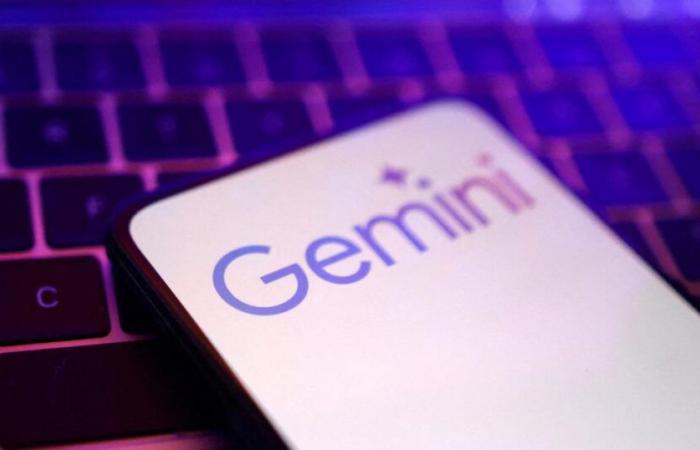The American tech giant wants to compete with the models of OpenAI, Meta and Amazon by making the daily life of its users easier.
Google announced on Wednesday December 11 the arrival of Gemini 2.0, its most advanced generative artificial intelligence (AI) model to date, intended to compete with other tech giants in a rapidly growing sector. According to Google boss Sundar Pichai, this new version must open “a new era” generative AI capable of directly making users' daily lives easier.
The new version of Gemini is currently only accessible to certain people, developers in particular, before a wider publication in early 2025, Google said. The company then plans to integrate it into its range of different products, such as its search engine, and in several languages. “Gemini 2.0 is the ability to make information much more useful”underlined Sundar Pichai in a blog note announcing Gemini 2.0, noting the ability of the new model to understand a context, anticipate and make decisions for the user.
Also read
OpenAI presents a new version of Sora, its video generative AI
Digital Butlers
Google, as well as Open AI, creator of ChatGPT, and Meta, parent company of Facebook, and even Amazon are in a race to develop new generative AI models at full speed, despite their massive costs and doubts about their real usefulness for society at this stage. What Google is trying to do is the new trend in Silicon Valley: making AI tools the new digital butlers, omniscient secretaries accessible at any time and capable of carrying out numerous tasks on behalf of the user.
Its promoters claim that this use constitutes the new major stage in the arrival of AI for the general public, after the sensational arrival of ChatGPT in 2022. According to Google, millions of developers are already using previous versions of Gemini. The training and operation of Gemini 2.0 is done with an internally developed chip called Trillium. The development of generative AI models was mainly done with hardware from the American giant Nvidia, a specialist in graphics chips, or GPUs.






